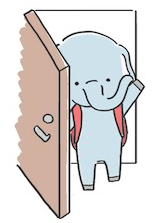ブログスレッド
- Japanese Online Newsletter Vol. 183 お盆と墓参り(おぼんとはかまいり)


お盆は日本の仏教の伝統的な行事で、先祖の霊を迎え、供養するために行われます。毎年8月15日を中心に、一般的には期間として8月13日から8月16日までの4日間に渡ります。ただし、地域によっては異なる日程で行われる場合もあります。
お盆の間、家族や親戚は亡くなった先祖の霊を迎えるために、特別な儀式や行事を行います。一般的には、墓参りや仏壇での供養、お供え物の準備などをします。
墓参りは、お盆期間中に行われる最も重要な儀式の一つです。家族は墓地に集まり、亡くなった先祖の墓前で祈りを捧げ、供養のためのお線香やお花、食べ物などを供えます。また、墓石の清掃もします。墓参りは、先祖への感謝や思い出を新たにし、繋がりを感じるための大切な行事とされています。
家に先祖の霊を迎えるため、仏壇や位牌を特別に飾りつけたり、食べ物や飲み物も準備します。仏壇前で祈りを捧げ、先祖の霊に感謝の気持ちを伝えます。
また、お盆期間中には、地域ごとに盆踊りや花火大会などのお祭りも行われ、地域の人々が一体となって楽しむこともあります。
ただ、最近では都市化や核家族化により、お盆の風習や行事が変化しつつあります。お盆休みを利用して旅行を楽しむ人もいます。また、宗教的な意味合いよりも、お盆は夏休みや家族の再会の機会として捉えられることもあります。お盆期間には多くの人が故郷や実家に帰省し、家族や親戚との時間を過ごします。
お盆は日本の文化や伝統に深く根ざした、日本人にとって大切な行事です。それぞれの家庭や地域によって異なる形で行われることもありますが、先祖への感謝や思い出を新たにし、家族や地域の絆を深める機会として重要視されています。
Obon and Grave Visitation
Obon is a traditional Japanese Buddhist event where people welcome and honor the spirits of their ancestors. It’s usually on August 15 each year, and generally lasts four days, from August 13 to August 16. However, different regions may hold the event on different dates.
During Obon, families and relatives welcome their deceased ancestors’ spirits with special ceremonies. Generally, they visit graves, make offerings at Buddhist altars, and prepare offerings.
Visiting the graves is one of the most important ceremonies held during the Obon period. Families gather at the cemetery to pray before their deceased ancestors’ graves and offer incenses, flowers, and food for memorial services. They also clean the gravestones. Visiting the graves is an important event to renew gratitude and memories of ancestors and to feel connected to them.
To welcome the spirits of ancestors into the house, people decorate the altar and tablets in a special manner, and they prepare food and drinks as well. They offer prayers in front of the Buddhist altar to express gratitude to their ancestors’ spirits.
During the Obon period, every community also holds festivals such as Bon dances and fireworks displays, which are enjoyed as a united community.
Recently, however, urbanization and the shift toward nuclear families are changing Obon customs and events are changing. Some people take advantage of Obon holidays to enjoy traveling. In addition, rather than viewing it for its religious significance, some see Obon as an opportunity for summer vacation and family reunions. During the Obon period, many people return to their hometowns or parents’ homes to spend time with family and relatives.
Obon is an important event for Japanese people, deeply rooted in Japanese culture and tradition. Although every family and region may observe Obon differently, it’s still considered an important opportunity to express gratitude to ancestors, renew memories, and strengthen family and community ties.

sign up for the Japanese-Online Newsletter
__..-・**・-..__..-・**・-.._ あいうえお かきくけこ さしすせそ たちつてと なにぬねの はひふへほ まみむめも やいゆえよ らりるれろ わゐうゑを ん __..-・**・-..__..-・**・-.._
#JapaneseOnline #LearningJapanese #FreeJapaneseLessons #JapaneseVideoLearning #JapaneseAnime #Anime #JapaneseFood #Bloguru
- ブログルメンバーの方は下記のページからログインをお願いいたします。
ログイン
- まだブログルのメンバーでない方は下記のページから登録をお願いいたします。
新規ユーザー登録へ